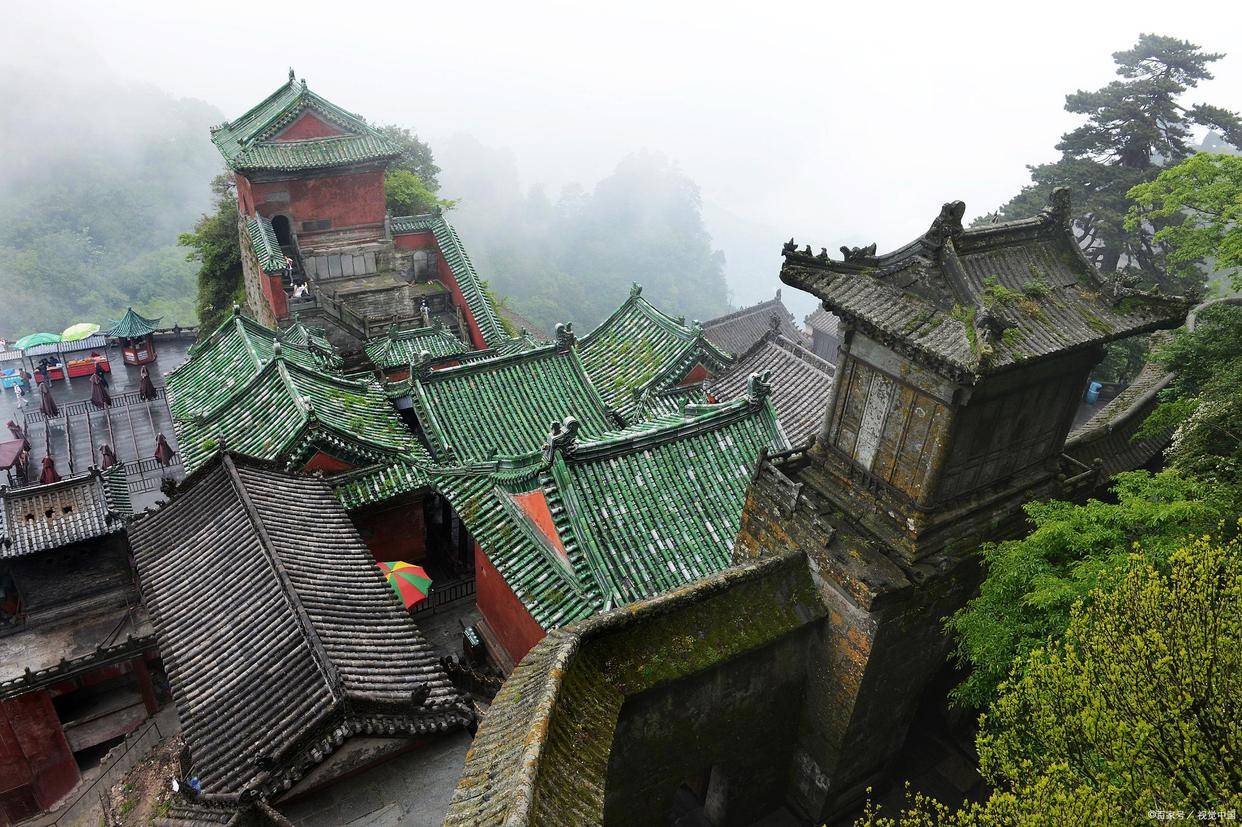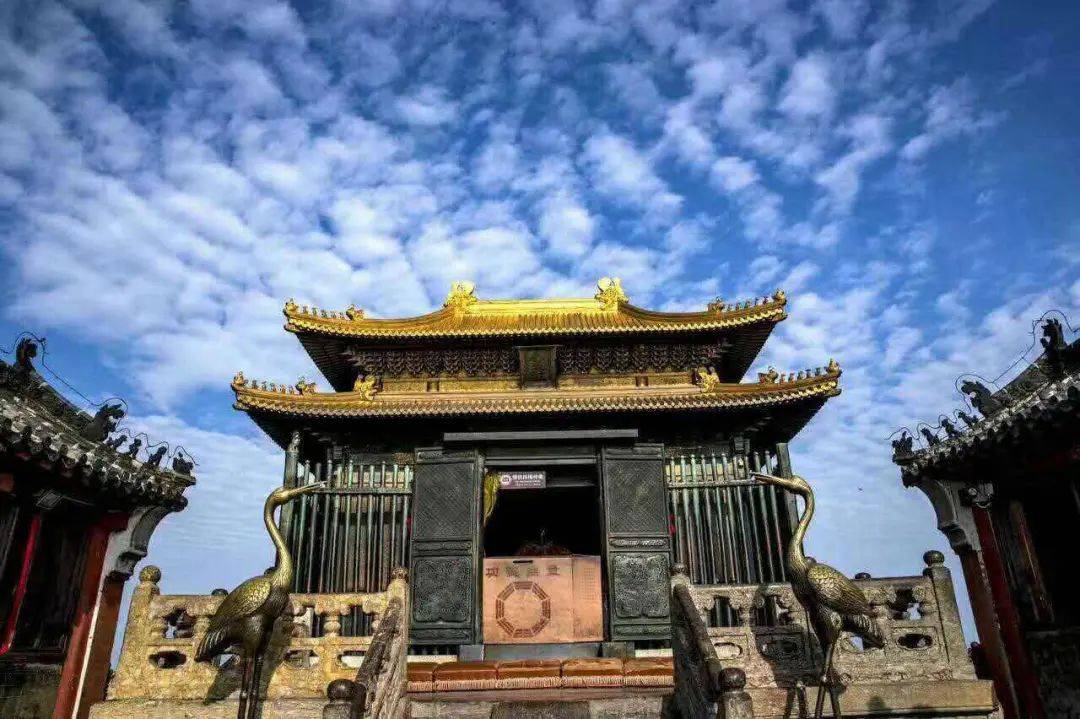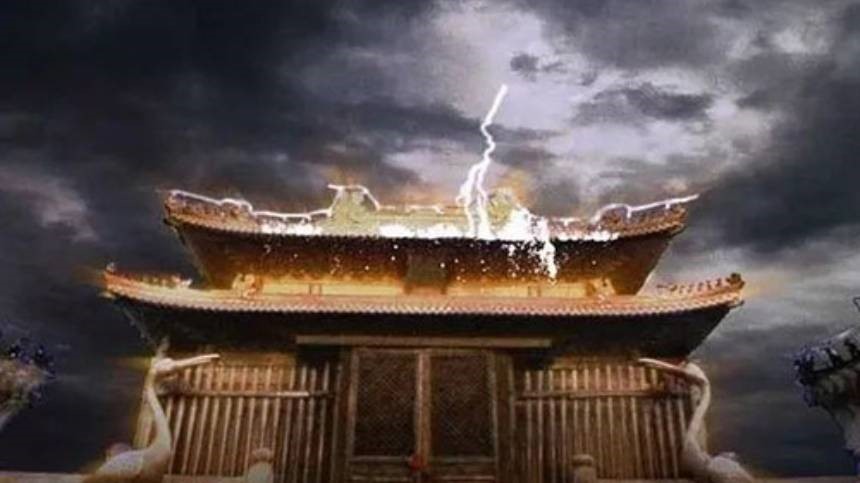YOU MAY NEVER have been anywhere near the Wudang Mountains (武當山) in the northwestern part of Hubei, China, but it will probably still be very familiar to you.
And that’s true, whether you are from the east or the west.
That’s because it is the archetypal location of so many books and movies and television shows which feature the mystical side of China – a place of misty mountains and dense forests, where Taoist teachers in ancient temples show young apprentices how to draw upon their inner strength to become master swordsmen or great leaders.

And of course, long before its atmosphere was captured in Chinese and Hollywood movies, its networks of temples with ornate roofs were revered as a center of ancient Taoism.
Worshippers and other visitors have long been enticed to the peaks of the mountains in Hubei to pursue spiritual awakening, practice martial arts and perform pilgrimages.
And there were many historical figures associated with the place before the modern movie heroes.
The mountains are known in particular for the legend of mythological Taoist deities – such as the Great Emperor Zhen Wu (真武大帝), a name which literally means True Warrior or Truly Valiant, and who became an immortal deity on the mountains. The revered site is now renowned for its complex natural landscapes, comprising 72 peaks and numerous rugged rocks, streams and mystic-seeming caves.
Taoist temples were initially constructed on the Wudang Mountains during the Tang and Song dynasties. The complex on the mountains were further expanded in the Ming Dynasty as hundreds of thousands of workers were deployed by emperors to build more palaces in early 1400s.
WELL-PRESERVED TAOIST ARCHITECTURE
On the misty Wudang Mountains, there are well-preserved Taoist buildings and palaces, notably the Golden Palace (金殿) which was built in honour of deity Zhen Wu.

On the top of Tianzhu Peak (天柱峰), the palace is perched just above the cloud line and visitors feel that they have stumbled onto a mythical place of Taoist immortals.
The wooden palace’s roof is coated with gold. Ancient tales say that when there was lightning during a thunderstorm, it directly struck the palace’s roof causing it to shine and spread its golden gleam to a sea of clouds (雷火煉殿) in a magical way.

Nowadays lightning protection devices have been erected on the Golden Palace’s roof – which helps mitigate dangers of a lightning strike that might cause damage, rather than a beautiful vision.
There are other famous Taoist structures to visit here too, namely the Purple Heaven Palace (紫霄宮), and the Prince Slope (太子坡) on the mountains.

The complex exemplifies ancient works of architecture that stand in harmony with nature, with some temples and palaces built on the hills and some in the valleys. The well-preserved Purple Heaven Palace is a wooden structure consisting of several halls.

On the Prince Slope, there are winding red walls covered with green tiles erected along the road up to the Golden Palace and other palaces in the mountains. It is perched on a steep slope, with a peak and a waterfall forming a picturesque frame.
UNPARALLELED MARTIAL ARTS
As mentioned, the Wudang Mountains have also been regarded as a sacred place of Chinese martial arts. How did that all start?

Legend holds it that Taoist master Zhang Sanfeng (張三豐) abandoned worldly desires to live the life of hermit on Wudang Mountains. Zhang developed martial arts based on internal energy, specifically Taijiquan (太極拳), in which yielding overcome aggression and softness overpowers toughness, as opposed to physical strength.

A Wudang martial arts academy has become a key destination for lovers of martial arts. Thousands of young people from the country and overseas nations flock to Wudang to learn the internal martial arts every year.
WUDANG IN HOLLYWOOD MOVIES
Meanwhile, the Wudang Mountains feature in several martial arts movies, namely Crouching Tiger, Hidden Dragon (臥虎藏龍) and The Karate Kid (功夫夢).

In the first film, directed by Oscar-winning director Ang Lee, well-known Wudang swordsman Li Mubai, played by Hong Kong’s award-winning actor Chow Yun-fat, decides to give up his ancient and powerful sword “Green Destiny”.
Yu Jiaolong, a spoiled young lady living in a wealthy family, played by famed Mainland actress Zhang Ziyi, decides to steal the priceless weapon.

In one of the scenes, a fierce fight between Chow and Zhang in a bamboo forest is captivating: Li apparently defeats Yu by harnessing spiritual powers beyond normal human abilities.
After Li rescues Yu in an ambush and passes away, Yu realizes Li had genuinely protected her. Swordfighter Yu Shulien, played by Michelle Yeoh, spares Jialong’s life and asks her to go to Wudang.
Also, The Karate Kid, starring Hong Kong’s kung fu star Jackie Chan and American actor Jaden Smith, was also shot in the Wudang Mountains.

Snowy and misty in winter and carpeted with flowers in spring, these glorious mountains remain a draw for visitors of all kinds. And you don’t need ambitions to be a master swordsman to have a reason visit – just an interest in Taoist philosophy or a desire to breathe in the mystical atmosphere are reasons enough to visit the Wudang Mountains.
Image at the top by CFP.

